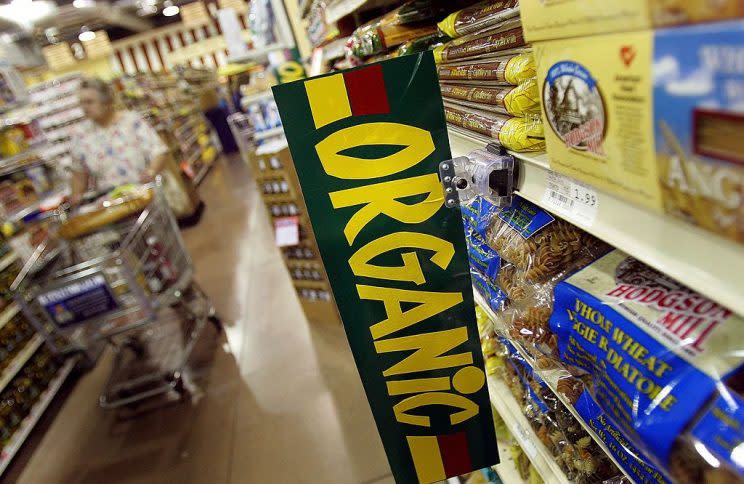What consumers need to know about food labels

A Toronto-area food manufacturer and distributor is facing criminal charges for allegedly forging kosher certification documents in order to sell non-kosher cheese to Jewish summer camps.
Creation Food Co. and one of its officials could be looking at five charges from the Canadian Food Inspection Agency after kitchen staff at the camp discovered irregularities in the cheese’s paperwork.
The Kashruth Council of Canada (commonly known as the Council of Rabbis or COR), which certifies food as kosher across the country, told CBC that while Creation had initially received COR certification for its manufactured food, the company lost that status in 2012 after numerous infractions.
The issue is a blow to consumer trust, especially for shoppers who rely on third-party certifications to ensure the food they buy and consume meets their religious views or personal values.
“Labeling in this country is heavily regulated – there are significant fines (under criminal law), there’s every reason in the world not to do what’s happened in this camp,” said Glenford Jameson, a Toronto-based food lawyer.
“You’re not allowed to create an erroneous impression about a product through labeling or through advertising – you’re not allowed to lie.”
Yet, it happens, said Jameson.
While this is the first case brought before a provincial court related to the misrepresentation of a kosher food product, he noted that there have been several cases in the past few years where the CFIA has filed charges against companies misrepresenting their food as “free-range” or “organic.”
“There are always a few actions here or there from the CFIA, but we’re seeing a real uptick,” said Jameson.
Trusted sources
Part of the challenge, at least for consumers, is knowing who to trust.
“There are all kinds of private labeling regimes that have their own rules and own clarification processes, which are inevitably going to vary depending on how vigorous they are,” explained Chris MacDonald, an ethics professor, with an interest in food ethics, and interim director of the Ted Rogers MBA at Ryerson University.
“In some cases, all you have to do is submit paperwork that says that you have the right processes in place and in other cases, there may be actual inspections … and then, of course, there are going to be some designations that are entirely unregulated or unverified.”
Mario Fiorucci, the co-founder of The Healthy Butcher, a Toronto-based shop specializing in ethically raised and sustainably sourced groceries, said mislabeling is the bane of his business’ existence.
“Survey, after survey has shown that people believe the term ‘natural’ to mean more than ‘organic,’ but the complete opposite is true,” he said.”
“’Organic’ is a regulated term that has some degree of government enforcement. ‘Natural’ means nothing and there is almost zero regulation or enforcement.”
Unfortunately, consumers facing dietary restrictions for religious or ethical reasons will need to be more diligent with their food selection.
“I think nutrition labelling, as it exists today, is almost worthless and needs to be completely revamped,” said Fiorucci.
“So (how) you can figure out the grams of sugar or carbs or protein? What is the quality of the food item? Is it real food? Or highly processed? The nutrition labels don’t express the real nutritional value of food.”
Ask the right questions
A good start is to ask questions.
“I think if any customer asks pointed questions about: How an animal was raised? What it ate? How it was killed? And if they don’t get answers, then don’t buy from that store,” said Fiorucci, pointing out that The Health Butcher arose from a lack of answers to the questions he and his wife had.
“You need to vote with your dollar. The more we turn a blind eye to deception, the worse the industry will get.”
Jameson recommends shortening the length of your supply chain.
“Get to know the folks who raise your food in terms of ethics. Farmers markets are generally helpful (and) a really wonderful way to understand how animals are treated and in what condition,” he said.
Know your markings
But Carolyn Young, a consultant with the Organic Council of Ontario, said that isn’t always possible.
“While ‘getting to know your farmer’ is one way to approach this problem, it is not a solution for everyone and, in some cases, is no longer foolproof,” she said.
“With the increase in demand for socially responsible and ethical products and the increasing downward pressure on food prices, this is a growing concern for consumers … wherever there is a premium price to be made, there will likely be some food fraud.”
Instead, the key to avoiding getting duped by clever marketing targeting ethical or religious dietary choices is to educate yourself on the reputable certifications.
For instance, Ocean Wise is a long-running program out of the Vancouver aquarium that helps consumers make sustainable choices about seafood. Then there’s the COR, which is one of the best known and most respected kosher certifying groups in Canada.
The same goes for choices surrounding buying organic, consumers should look for the federally regulated Canada Organic label.
“It’s hard when you’re sifting through a shopping centre, trying to get food together for a family and you just see ethically raised, or grass fed … it may be clear what it means, or it may create an impression that is not accurate,” said Jameson.
“Get familiar with the marks, become really comfortable with them and what they mean.”

 Yahoo Finance
Yahoo Finance 